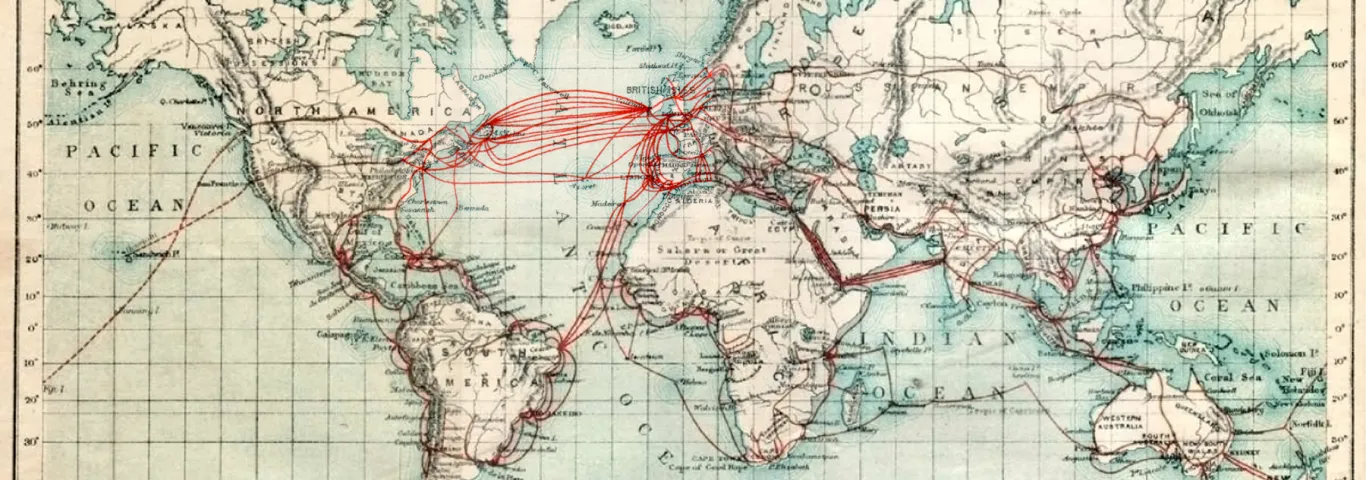About the Undergraduate Minor
The 15-unit minor is necessarily flexible to accommodate the various backgrounds and goals of its students. The curriculum addresses data management, statistics, text analysis, geospatial analysis, digital prosopography, data visualization and information design. It entails experience in digital project work, and features a good deal of cross-disciplinary engagement. Our goal is to enrich the analytic skills that students can bring to bear on traditional and emerging topics across the humanities.
A student who does have previous computational experience — a computer science major, for instance — will also benefit from the minor. Grafting that knowledge to the problems of cultural and historical analysis and working on challenging new projects within unfamiliar fields, computer-savvy students will find themselves becoming more versatile than ever (and therefore, we believe, more attractive to graduate admissions committees and potential employers).
Internships and Research Assistantships
The DASH minor is unusual among humanities programs in its focus on hands-on undergraduate research via internship. STEM fields provide relatively straightforward pathways toward research, whereas humanities students sometimes struggle to define what humanities research entails and how to get involved. Research opportunities are built into the DASH minor. DASH requires every student to take at least 3 units of directed research during an internship on a faculty-led project, and students are encouraged to work on more than one project or to advance their skills during another semester or summer. Students may take up to 8 units of internship/research. Lists of projects and opportunities can be found on the Comparative Literature & Thought and Humanities Digital Workshop websites.
Summer Fellowships
Every summer, the Humanities Digital Workshop invites applications from students for its summer fellowships. The fellowships pair students with humanities faculty engaged in digital humanities projects for 8 weeks, and past participants have overwhelmingly found this experience to be valuable.
Visit our DASH Minor Course Requirements Page to learn more about obtaining the minor in addition to our current list of approved electives.
About the Graduate Certificate
In response to increasing graduate involvement in the Humanities Digital Workshop (HDW) and its associated faculty-led projects, we offer a graduate certificate combining traditional humanities inquiry with computational methods and analysis. All graduate students in the humanities, regardless of home PhD program, are welcome to pursue this certificate. A data-driven approach can complement and enrich any humanities field, and the certificate features appreciable cross-disciplinary engagement. Recent projects have been supervised by faculty in fields as diverse as History, Music, German, East Asian Languages and Cultures, American Studies, Philosophy-Neuroscience-Psychology, Women Gender and Sexuality Studies, and English. Our goal is to enrich the analytic skills that students can bring to bear on research in their home disciplines, and to enable them to contribute thoughtfully and resourcefully in other disciplines of the humanities.
The curriculum addresses data management, statistics, text analysis, geospatial analysis, digital prosopography, data visualization and information design. This curriculum will acquaint any PhD student with new methodologies and techniques, and will foster an awareness of the theoretical implications of using them.
This certificate program emphasizes both collaborative research and pedagogical training. You will work on a faculty project in the HDW, a requirement most often filled through participation in the HDW summer workshop, an 8-week program that pairs faculty with a small group of graduate and undergraduate fellows. The collaborative work environment, combined with weekly project meetings and skills workshops, make these immersive summer programs an unusual counterpoint to traditional graduate work. The DASH Certificate also requires the 3 unit course L93 IPH 590 "Digital Humanities in the Classroom", ensuring that pedagogical training accompanies more traditional coursework. See "Requirements" below for additional details.
